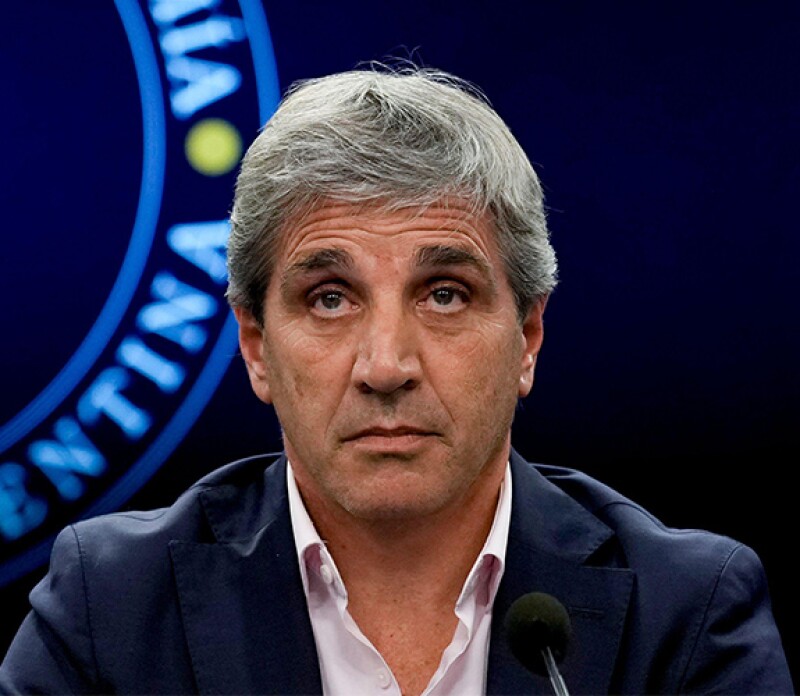Argentina’s president Javier Milei faces critical mid-term elections later this month that could spell doom for his reform programme. The US has promised financial aid, and started to deliver it, helping Argentina stave off yet another sovereign default. But it may not be enough to get Milei a working mandate.
Despite Milei’s aggressive populism, his economic changes since taking office in December 2023 have given investors confidence and — for a time — lowered Argentine bond yields to levels where the country might have been able to start issuing again.
But in early September, a regional election in Buenos Aires province, where 40% of voters live, pulled the rug from under Milei. His party La Libertad Avanza got only 34% of the vote, to 47% for the Peronist Justicialist Party.
It topped a damaging few months, in which Milei and his sister Karina, his campaign manager and general secretary of the presidency, have faced corruption allegations.
Bond yields soared and the peso plummeted 10% against the dollar.
Milei had allowed the peso to partially float as part of Argentina’s $20bn deal with the International Monetary Fund, signed in April. But there are upper and lower bands and the peso breached the lower end in the middle of September, forcing the central bank to use valuable dollars to shore up the currency.
“It was easy to feel good when the peso behaved in an orderly fashion, but [with the central bank] having lost some control over it, that makes me nervous,” said Kate Moreton, emerging market sovereign analyst at Columbia Threadneedle in Los Angeles. “Anything that threatens reserves is a problem.”
Electoral test
The provincial election result does not bode well for Milei in the national parliamentary poll on October 26.
When he came to power Milei promised sweeping changes to fix an economy that has floundered for years. Until early this year things were on track — there was a large decline in inflation, growth edged higher and some of the many imbalances were starting to reverse, even if the economy was still very fragile.
Early this year, Argentina’s five year dollar bond yield got as low as 5.2%. Bankers expected Argentina to return soon to issuing new bonds, for the first time since 2017 — probably by the end of this year.

But sentiment deteriorated, and September’s election shock knocked the yield out by nearly 1,500bp between late August and mid-September, to 25.8% according to Tradeweb. The yield had rallied back to 15.6% by last week, but any thoughts of issuance are shelved.
“The goal for issuance when I was there in March was the summer [2025], and if yields were under 10%,” said Moreton. “They weren’t far off, but it’s now not going to happen any time soon. Optimistically, it will be next summer. The market will need some time to see that [Milei] has political goodwill again and that the political programme can continue.”
Parliamentary arithmetic matters, because up to now Milei has pushed through reforms without a majority in either house, relying on executive decrees and the support of allies, who are not always reliable.
“Milei has lost a lot of political capital, and he may struggle to make any headway going further with his programme,” said Alexis de Mones, EM debt portfolio manager at Ashmore in London. “His veto is being overruled because he does not have enough support, and people that were his allies are having no qualms about voting against him now.”
Our friend in the north
At this juncture, support from the US is a godsend for Milei. Luis Caputo, the minister of economy, was in Washington last week for talks with Scott Bessent, the US treasury secretary.
On October 9, Bessent said support had begun. “The US Treasury is prepared, immediately, to take whatever exceptional measures are warranted to provide stability to markets,” Bessent posted on X.
He said the US had “directly purchased” Argentine pesos and finalised terms of a $20bn “currency swap framework”.
“The US financial backing is fantastic for Milei and his government’s ability to withstand attacks on the currency, and is providing support for the bonds,” said de Mones. “The support is extraordinary and unprecedented. There’s really been a ‘whatever it takes’ attitude from Bessent.”
Argentina would not necessarily need to use the swap, said Moreton — she had seen estimates that it has used less than a third of its $18bn swap line with China.
“The money will be there if they really need it,” she said. “They’ve had the swap line with China for a while but they’ve only drawn small amounts. It’s something that ideally you’d never need to draw on.”
Investors have also wondered whether the US might try other forms of support. Among the more probable are buying Argentine dollar bonds; the more outlandish include guaranteeing new debt issues or a new series of Brady bonds.
“It’s hard to overstate how big a sign of support for Argentina this is,” said economists at Capital Economics on September 26, referring to US promises. “But while the US’s backing might give Milei breathing space ahead of the mid-terms, it won’t solve Argentina’s more fundamental issues.”
As the head of EM debt at a US investment firm saw it: “Milei needs a mandate. If he cannot get the third [of parliamentary votes] he needs then he’s effectively unable to continue the policies that he has been doing. I think he will keep the mandate, but it’s not guaranteed.”
